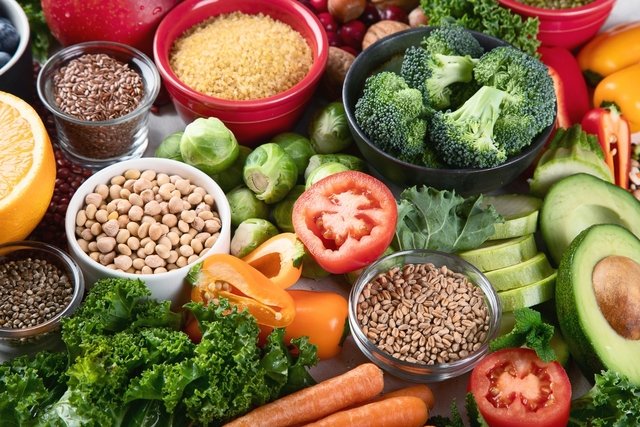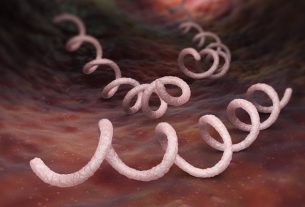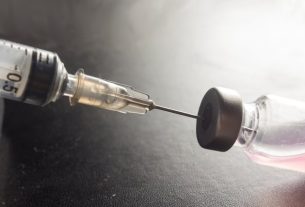In the diet to avoid and help treat hemorrhoids, you should prioritize foods rich in fiber, such as fruits, vegetables and whole grains. This is because fiber favors the natural movement of the intestine, facilitating the elimination of feces.
It is also important to drink plenty of water, as liquids increase the hydration of feces and reduce the effort to defecate, preventing bleeding that can occur from hemorrhoids. Know the amount of water recommended for each person.
In addition, you can also use some teas such as rosemary or chamomile, which have anti-inflammatory and analgesic effects, helping to reduce the pain, discomfort and burning of hemorrhoids.

What to eat
Some foods recommended for those with hemorrhoids are:
- Whole grains, such as brown rice, wholemeal pasta, wholemeal bread, rolled oats, amaranth and quinoa;
- seeds, such as pumpkin, chia, linseed and sesame;
- Fruits with skin (when possible)such as watermelon, orange, kiwi, mango, persimmon, tangerine and papaya;
- Legumessuch as lettuce, tomato, arugula, watercress, bertalha, kale, chayote and pumpkin;
- Oilseedssuch as peanuts, walnuts, almonds and chestnuts;
- Healthy fatssuch as olive oil, avocado oil and flaxseed oil;
- Legumessuch as beans, chickpeas, lentils and soybeans;
- Low-fat proteinssuch as chicken, fish, eggs, turkey and tofu;
- Low-fat dairy productssuch as skimmed milk, white cheeses and low-fat yogurt.
It is recommended to prioritize raw fruits and vegetables, when possible, as they contain more fiber than the cooked version.
Furthermore, it is also important to eat foods rich in fiber at every meal of the day, such as whole grain bread for breakfast, vegetables for lunch and dinner, and fruit for snacks and desserts. Check out other fiber-rich foods.
Can people with hemorrhoids eat eggs?
People with hemorrhoids can eat eggs, as there is no relationship between the consumption of this food and the appearance or worsening of hemorrhoids.
What to avoid
Foods that should be avoided in cases of hemorrhoids are:
- Caffeinated foods and drinkssuch as coffee, green tea, mate tea, chocolate and cola drinks;
- Foods rich in fatsuch as pizza, ice cream, hot dogs, hamburgers, fries and fast food meals;
- Fatty dairy productssuch as whole milk, whole yogurt and yellow cheeses;
- Low fiber foods, such as white bread, tapioca, white rice, white pasta;
- Proteins with a lot of fatsuch as red meat, lamb, pork and duck;
It is also recommended to avoid alcoholic drinks, pepper and other spicy condiments, as they can cause irritation in the intestine, worsening hemorrhoid symptoms.
3-day menu for hemorrhoids
The following table provides an example of a 3-day menu for hemorrhoids:
This menu is just an example to be included in the hemorrhoid diet, which may vary depending on health status, weight and physical activity. For better monitoring, it is advisable to consult a nutritionist to carry out a complete assessment and plan a menu according to individual needs.
Other tips to relieve hemorrhoids
Other tips that help relieve hemorrhoids are:
- Drink plenty of water and teato improve bowel function;
- Use home remedies, such as rosemary tea or chamomile sitz bath, which help reduce inflammation in hemorrhoids. See other home remedies for hemorrhoids;
- Chew food well and slowlyto help with the digestion of fiber in food, favoring the formation and elimination of feces;
- Use dietary fibersuch as psyllium and chitosan, which reduce bleeding and the occurrence of hemorrhoids;
- Use probiotic foodssuch as yogurt, kefir and kombucha, for example, as they help regulate the intestinal microbiota, preventing constipation.
Furthermore, in some cases, it is also recommended to do light, low-impact physical activities, such as walking and swimming. This is because exercise improves and strengthens the pelvic floor muscles, preventing constipation and relieving hemorrhoids.
See with nutritionist Tatiana Zanin how to carry out a natural treatment for hemorrhoids:
Bibliography
- HARVARD HEALTH PUBLICHING. 6 self-help tips for hemorrhoid flare-ups. Disponível em: <https://www.health.harvard.edu/blog/6-self-help-tips-for-hemorrhoid-flare-ups-201307196496>. Acesso em 04 abr 2023
- TELEHEALTH RS – FEDERAL UNIVERSITY OF RIO GRANDE DO SUL. Teleconducts No. 18 – Hemorrhoids. 2018. Available at: <https://www.ufrgs.br/telessauders/documentos/telecondutas/tc_hemorroidas.pdf>. Accessed on April 4, 2023
- NATIONAL INSTITUTE OF DIABETES AND DIGESTIVE AND KIDNEY DISEASES. Eating, Diet, & Nutrition for Hemorrhoids: What should I eat if I have hemorrhoids?. Disponível em: <https://www.niddk.nih.gov/health-information/digestive-diseases/hemorrhoids/eating-diet-nutrition#:~:text=Your%20doctor%20may%20recommend%20that,in%20your%20diet%20work%20better>. Acesso em 04 abr 2023
- SALGUEIRO, Paulo et al. Portuguese Society of Gastroenterology Consensus on the Diagnosis and Management of Hemorrhoidal Disease. Portuguese Journal of Gastroenterology. Vol.27. 2.ed; 90-102, 2020




